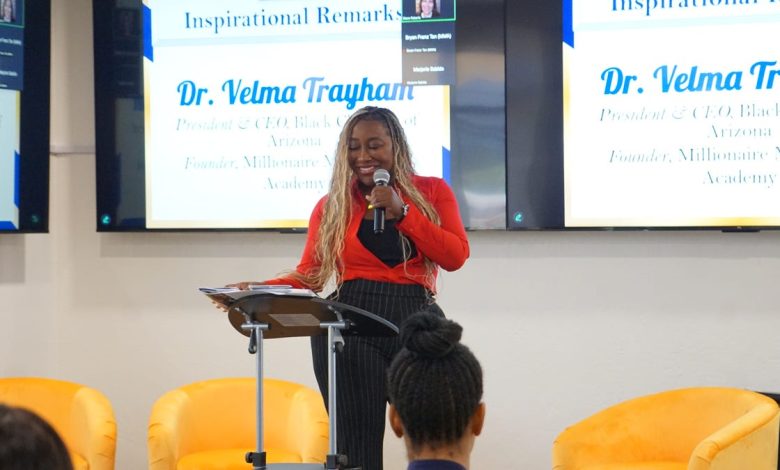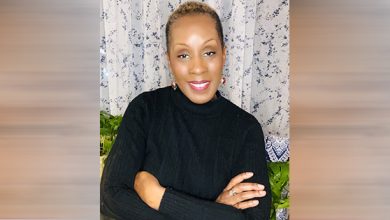Black Chamber of Arizona sees increase in sales and job creation


Black chamber leader explains why everyone’s watching Arizona
Velma Trayham explains why Arizona is a prime space to grow Black entrepreneurship and opportunity for all.
Arizona Republic
- Members of the Black Chamber of Arizona saw a $1.5 million aggregate increase in sales and created more than 500 new jobs in 2024 and 2025, according to a report it released.
- The impact report is the first such report the Black Chamber has done, and CEO Velma Trayham said it will help create a path forward to set goals.
Members of the Black Chamber of Arizona saw a $1.5 million aggregate increase in sales and created more than 500 new jobs in 2024 and 2025, according to a new economic impact report it released.
“Creating 500-plus jobs really stood out to me,” Velma Trayham, CEO of the Black Chamber of Arizona, said. “In order to increase the number of employer firms by Black-owned businesses, we have to help entrepreneurs grow their revenue so they can hire.”
Since taking the lead role at the Black Chamber in early 2024, Trayham said she has worked to focus the organization’s efforts in key areas, like contract readiness and access to capital. According to the report, Black Chamber members secured $5 million in capital during the time period.
There are many governments and organizations that will award contracts to small and minority-owned businesses, she said, but often those businesses do not have the infrastructure in place to quickly receive and fulfill that contract.
Zaneta Alexander, co-founder and CEO of Lifeology, a nonprofit organization serving homeless youth and young adults, received a government contract in 2021 to help homeless and runaway youth. When her co-founder had to step away from the organization, she found herself running Lifeology by herself in the middle of a government contract.
She got a scholarship to enroll in Trayham’s Impact AZ business accelerator, which is now part of the Black Chamber.
“I told (Trayham) I wanted to feel confident in financial management and contract management on a federal level,” Alexander said. “She ensured I had mentors familiar with contracts and nonprofit management.”
Sessions with banks during the program taught her how to use accounting software, and working with the accountant from Trayham’s company, Thinkzilla, she was able to lower her overhead costs and find ways to operate more efficiently.
Since completing the program, Alexander said she has been awarded several more government contracts, including for a summer camp, and she applied for another contract for homeless youth services.
“It’s almost a million dollars in contracts at this point,” she said. She has also been able to grow her staff, which now ranges from 10 to 15 people, depending on the programs she is running.
Programs offered by the Black Chamber helped her make connections with large corporations that have corporate philanthropy for local nonprofits and to find different opportunities that she would not have been able to do on her own.
“As a small business, you can’t just pick up the phone and call these people,” she said.
Trayham said fostering an environment where entrepreneurs can start businesses that solve problems is crucial, especially as many governments dismantle their diversity, equity and inclusion (DEI) programs that often had requirements for contracts to go to minority-owned and women-owned businesses.
“There is an attack on DEI, that’s why it is important to teach entrepreneurs to build a business that solves problems,” she said. “We are building businesses that are sustainable that solve problems.”
The impact report is the first such report the Black Chamber has done, and Trayham said it will help create a path forward to set goals.
“This shows that, given the right opportunities, the right resources, how valuable they are to the economy,” she said of Black Chamber members.
Corina Vanek covers development for The Arizona Republic. Reach her at cvanek@arizonarepublic.com. Follow her on X @CorinaVanek.




